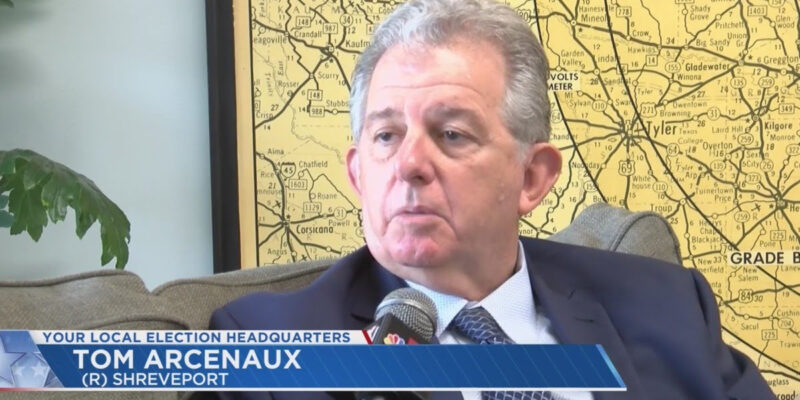Over the past couple of months, Shreveport Republican Mayor Tom Arceneaux’s margin for reelection error has become quite a bit smaller.
Arceneaux attained office in the majority black, plurality Democrat city almost two years ago largely because he emanated an air of competence after the previous amateurish and detached rule of his predecessor Democrat Adrian Perkins and because he maneuvered his candidacy into a runoff with Democrat former state Sen. Greg Tarver who brought a controversial past and baggage of old political rivalries within the black community to a contest he would lose. With several black Democrats building power bases for 2026 that could challenge Arceneaux successfully, in order to win reelection he would have to govern well with as little drama as possible.
Not unexpectedly, when opportunity arises Democrat councilors oppose Arceneaux. Saddled with a consent decree on water and sewerage that forced higher property taxes in bond sales and higher rates (incrementally increasing over several years), Democrat councilors dragged their feet on the rate hikes and decried it all until (inevitable, given the decree) their approval, using that as a way to cast blame on Arceneaux and deflect it from themselves for the hikes.
And they helped to whip up an issue about the Shreveport Police Department’s headquarters decrepitude, which had existed for some time. Arceneaux had a plan for an orderly departure, mainly farming out functions to substations, but the Council partially was at fault for the dilatoriness by not having moved forward on a 2021 passed bond issue that would have built a new facility as half-baked planning and policy out of Democrat-run Washington ignited price inflation that left the city several million dollars short of funding to complete it.
Problem was, however, for Arceneaux that Republican councilors agreed with their colleagues across the aisle and all put pressure on him by refusing to send forward on three occasion authorizing ordinances to put the approved issuances, one of the three addressing the consent decree, up for sale until he moved more quickly on the relocation, which he finally did. Matters became worse for him when a related issue also drew Council ire: one of the planned substations was to be situated on land on behalf of the city Arceneaux had accepted by donation, but with a stipulation of use only for such a substation for at least a quarter-century. Having been presented with the contract after the fact, the Council then voted recently to strip mayors of the power unilaterally to do this unanimously as a direct slap to him.
Bipartisan Council moves against him didn’t turn out to be his only difficulty this fall. Shreveport’s 2025 budget will take a slight overall haircut, and while it appears to distribute cuts adroitly, some citizens may notice differences, and in these cases the chief executive usually draws the blame, even if Arceneaux can point to pie-in-the-sky and unwise spending tied back to his predecessor as the reason.
Finally, Arceneaux found himself boxed in over the issue of demolishing an even more decrepit city building, Fair Grounds Field. For sanitary and liability reasons the ball park unused for years needs levelling, but some citizens have tried suasion and legal action to prevent that in the hopes of rehabilitating the structure for use. Given their characteristics and places of some in the community, members of the coalition behind the group probably more likely voted for Arceneaux than Tarver, but his insistence on demolition, scheduled to happen no later than early next year as no realistic proposal has come forth to save it, may lose their votes and influence for him in 2026.
It’s been a rough fall for Arceneaux, but he did beat the odds to gain office. However, it looks like they are getting longer for reelection.
Advertisement
Advertisement

